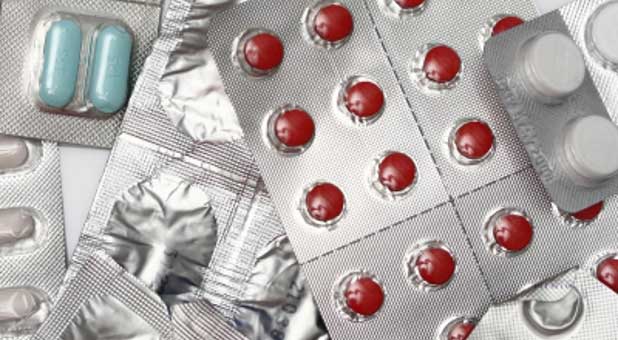New research shows that a form of vitamin B-5 called pantethine significantly lowers cholesterol—and the supplement could offer an alternative for people taking statin drugs.
The study “confirmed the efficacy of pantethine in a healthy North American population who had mild to moderate cholesterol levels,” says John Rumberger, M.D., a cardiologist at Princeton Longevity Center in Princeton, N.J., who co-authored the research.
Smaller studies had also previously shown that pantethine has cholesterol-lowering effects, but the new findings mean that vitamin B-5 may be a viable statin alternative, says Rumberger.
“Statins are a great medication, but they are not for everyone,” he says. “Studies indicate that up to 20 percent of the general publication can’t tolerate them, and others have health issues that may not make them a good candidate for statin therapy.”
Some 15 percent of statin users report side effects, which can include headaches, dizziness, muscle soreness and fatigue. Pantethine only rarely causes side effects, with mild stomach upset being the most common. A review of studies found that the supplement led to side effects in only 1.4 percent of subjects.
In the four-month study, Rumberger and his colleagues gave 120 people a Japanese brand of pantethine called Pantesin. Subjects took the supplement daily and also followed a healthy diet. Those taking the supplement experienced a 3 percent greater drop in total cholesterol and 4 percent reduction in “bad” LDL cholesterol than those in a control group, who also followed a heart-healthy diet.
While it isn’t exactly known how pantethine works, it is believed to work much like statins, which block an enzyme that the body uses to manufacture cholesterol.
Pantethine’s cholesterol-lowering effects may prove to be too mild to allow it to be used as a substitute for statin drugs, says cardiologist Chauncey Crandall, M.D., chief of the heart disease prevention program at the world-renowned Palm Beach Cardiovascular Clinic.
“Statin drugs are disease-specific medications targeted to lower cholesterol, so they provide significant reductions,” he tells Newsmax Health. “These [pantethine] supplements can help, but too often you have to take a large number of pills each day to get the effect.”
For his patients who wish to lower their cholesterol without statin drugs, Crandall has been recommending the following daily regimen: 500 mg of niacin, 650 mg red yeast rice, 2 grams of plant sterols.
“Pantethine could be added to these other supplements to get cholesterol under control,” he says. “To really lower cholesterol, you also have to add in other behaviors, like eating a plant-based diet, achieving ideal body weight, getting adequate sleep and leading a low-stress way of life.
“We do need an alternative to statins for lowering cholesterol, but this research is early, so we will have to see how it pans out.”
Pantethine is widely available at drugstores, health food stores and through websites. Suggested dosage is 300 mg with meals three times a day.
For the original article, visit newsmaxhealth.com.












